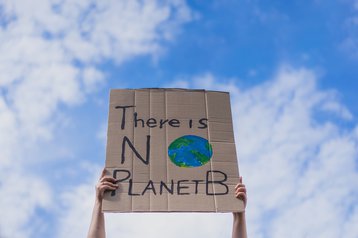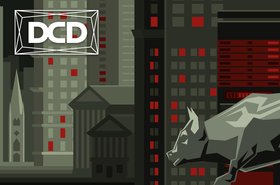The concept of the ‘circular economy’ isn’t new. We have been aware for decades now that we need to move away from the linear ‘take-make-dispose’ habits most of us have acquired, and make a move towards a more circular attitude, wherein we reuse rather than dispose.
Fortunately, this shift has been taken seriously across the world. We are seeing a major movement towards greater sustainability in multiple industries. But, despite these moves, we still have a long way to go before our impact on the environment significantly eases.
Nicola Peill-Moelter, the Sustainability Innovation Lead for VMware spends her time working towards this goal of a more efficient circular economy and thinking of the solutions to our current problems.
“How can we improve the efficiency of that infrastructure so that it's utilized more productively? We can minimize the amount of infrastructure that's required to support these workloads. Of course, that has an enormous business value for the companies paying for that infrastructure to run it.
“Secondly, are there ways that we can further minimize the impact of that infrastructure when it becomes end-of-life? By repurposing, re-using, repairing, and then - my dream - to have it become compostable so that we can get to the soil and technical nutrients.”
It is commonplace to learn about the ‘Rs’ in primary school, though it is simplified to reduce, re-use, recycle. Despite being a self-explanatory process (simple enough for children to understand), the reality is that we lack the push to achieve it despite the stakes being so high.
“I think it goes back to the fact that we're all human beings, and as human beings on a day-to-day basis, we are concerned about ourselves. We are concerned about our health, getting food, sleep, taking care of our families, and then our communities and our jobs. What has to happen is two-fold.
“One, it needs to become important from a personal perspective. We need to understand why this is something we have to be paying attention to and spending our time on. Secondly, I think that the companies we work for need to prioritize it because what we do in our day-to-day jobs is usually dictated by our managers and by the leadership of the company.”
It is at the organization level that we see the most impact. Susanna Kass, the Data Center Advisor for the United Nations Sustainable Development Goals, has a unique insight into the extent of this issue.
“As a member of Power 100 and a member of Climate 50, I have been very privileged to work with many who have improved energy efficiency in the data center industry in terms of China's transition to clean energy.
“However, according to a couple of the reports that we look at, at the UNSDG level the emission factor is actually rising and going in the wrong direction, the temperature continues to be rising. If we continue to do as we are currently, we're not going to be able to meet that target for the Paris Agreement.”
It is an industry-wide issue that we need to look at, regardless of the individual companies, whose efforts can be seen.
“We [InfraPrime] are designing a data center that can be taken apart and know exactly which of the components are sustainable. Basically, what I created is called the sustainable material passport. We're creating a software-defined IP that we can identify and assess the sustainability element of each of the materials, and throughout the entire lifecycle while it's being manufactured while it's being transported.”
Through this greater awareness, we can begin to get down to the granular detail of reusing, recycling, and remanufacturing.
What needs to be remembered is that the digitalization of our planet is important in improving the livelihood of many people. However, if it cannot be done sustainably, it must not be done.
Henry Daunert, Chairman for CIRKLA and the last of our speakers summarized this perfectly: “We are having to digitalize not-so-advanced economies. This is also a great social benefit. So, altogether, this is much bigger than just the use of natural resources. It has a global impact at all levels. I think it's a cultural change, and the faster we embrace this cultural change, the better for all of us. As a planet, and as a society.”
Learn more about making the data center industry follow a circular economy model by listening to the full episode. Fill out the form below for access.


